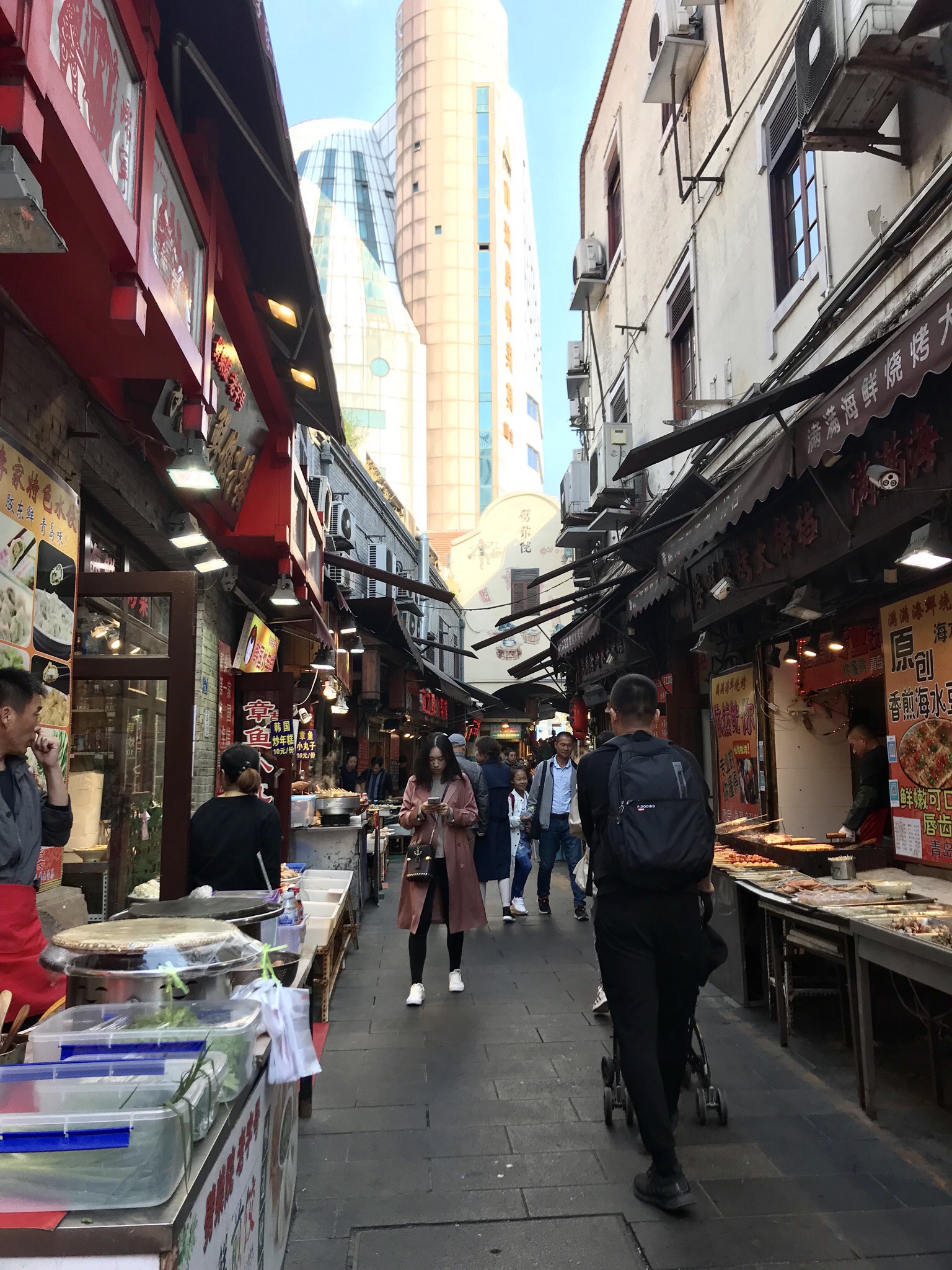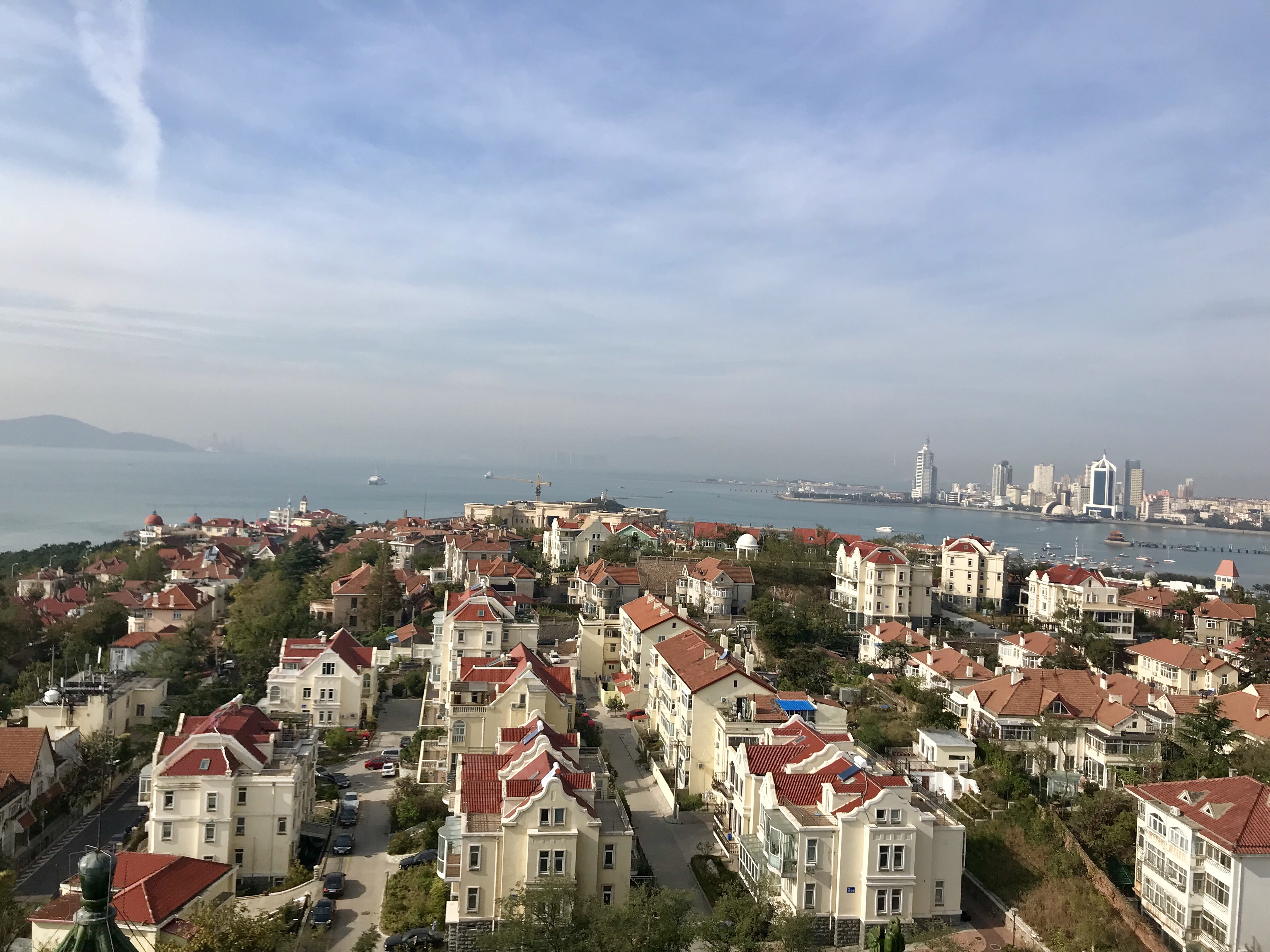48 Hours in Qingdao
Guest Post By: Marketing and English Senior Katie Chua. She is a Foster School Undergraduate who participated on Foster Exchange at Peking University in Beijing, China for Fall Semester 2018.
 “As an American, you must be like, ‘efficient transportation? What’s that?’” a German exchange student once told me. He’s not wrong and I can’t help but be incredibly envious of China’s rapidly expanding and incredibly efficient train system. In an attempt to take advantage of this system, Catherine and I decided to visit a coastal city in China called Qingdao. Qingdao is in the middle between Beijing and Shanghai, situated on the coast of the Yellow Sea, once occupied by the Germans, and home of Tsingtao beer.
“As an American, you must be like, ‘efficient transportation? What’s that?’” a German exchange student once told me. He’s not wrong and I can’t help but be incredibly envious of China’s rapidly expanding and incredibly efficient train system. In an attempt to take advantage of this system, Catherine and I decided to visit a coastal city in China called Qingdao. Qingdao is in the middle between Beijing and Shanghai, situated on the coast of the Yellow Sea, once occupied by the Germans, and home of Tsingtao beer.
Leaving Friday afternoon after class, we booked it to Beijing South Railway Station. Loaded up on Chinese snacks like honey potato chips and cheese yogurt, we were on our way. The trains in China are quite comfortable with outlets that actually work and ample legroom. It’s common to stand up and stretch your legs or you can moodily stare out the window as you watch the landscape change before your eyes. Either way, the trip didn’t feel as long as it was, and we arrived at night, checked into our hostel, and slept.
Whenever I sleep somewhere I’m unfamiliar with, I usually wake up before my alarm, which unfortunately was 6 in the morning. Unable to go back to sleep, I decided to get up and take a walk around Qingdao, before we started our day exploring. Due to the German occupation, Qingdao’s culture and architecture exhibits the European influence. Red-tiled roofs and cobblestoned streets greeted me as I stepped out into the cool morning air. I love early mornings simply because of the quietness, and I realized I hadn’t heard that in awhile, since living in Beijing. Eventually, I came upon a park and hiked a steep hill.
I could hear classical Chinese music playing as I finally reached a clearing. There, I saw a group of senior citizens practicing tai chi along with the music blaring from an old stereo. While I’m positive that actually doing tai chi might be more effective than watching, it was still wonderfully calming to just watch them slowly yet gracefully move in sync. Another group behind me was playing an intense game of jianzi, which is essentially a Chinese version of hacky sack. Their whoops and hollers rang through the park, echoed with the classical Chinese music. I continued my climb up and there, I saw another group practicing tai chi, only this time, with swords. As I watched elderly women calmly maneuver a sword, I was reminded of a saying that basically goes along the line of, “God help the person who pisses off an old Chinese granny.”
But the best part of this was walk was the complete view of the city of Qingdao. I could see the ocean, the beaches, the old cathedral, the new skyline being built, and so much more. I breathed in the fresh ocean air and it was one of those moments where I was like, holy crap, I’m in China!
The weekend was then spent meandering the streets of Qingdao. While there were a few subway lines, the city was small enough to travel around foot. Catherine and I were both reminded of Seattle because of all the hills, but unlike Seattle, we got to soak up some sun and eat strange meats on a stick, because you know, why not. Our activities included a tour at the Tsingtao brewery and museum. We learned how beer was made, which includes a fun flower called hops, and from a poorly-translated sign, “mystic yeast.” We ate cake at a tiny cafe tucked away in an alley, seafood from an extremely nice restaurant that originally handed us the Chinese menu and then took pity on us and gave us the English one. We got ripped off by a street vendor (just buy your jianbings in Beijing) and walked around the pier.
It was a much-needed reprieve from our routine in Beijing stuffed with classes and smog. After a fun 48 hours in Qingdao, we had to go back to reality and classes on Monday. Over the weekend, our daily step count reached above 30,000 and in China, everyone uses the app WeChat. One feature is WeRun, which connects to your step counter on your phone and shares it with your friends. It becomes a fun competition to see who has the most amount of steps that day.
“How do you get so many steps in?” the same German exchange student asked me the following day. I told him it was simply because we didn’t know how to use the public transportation system.
